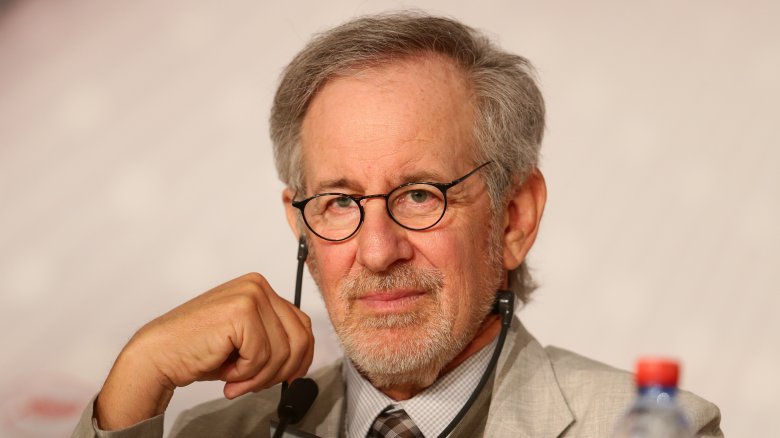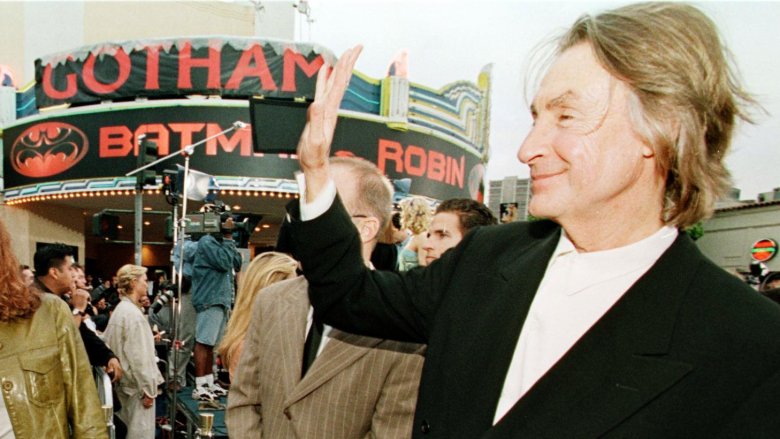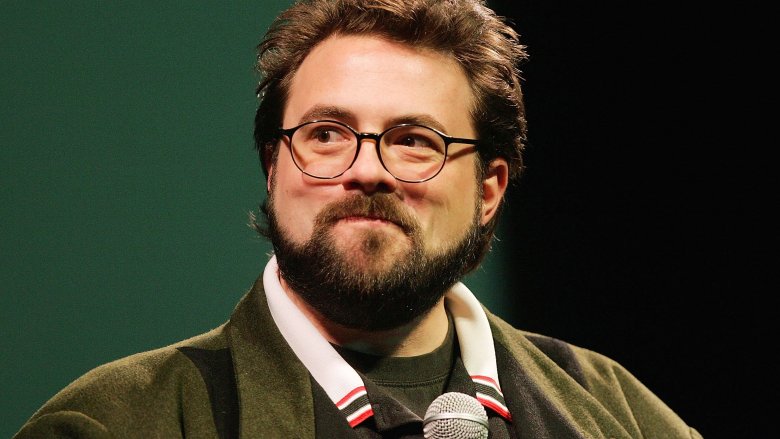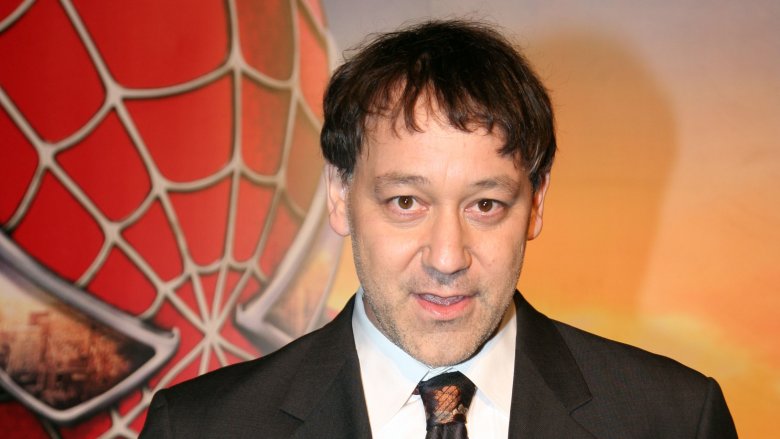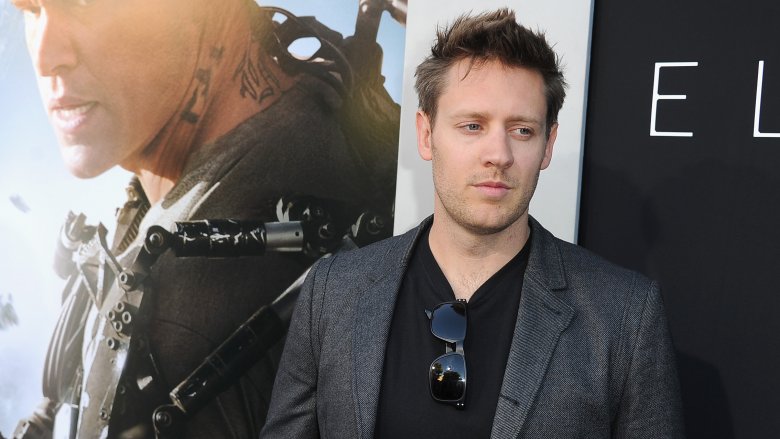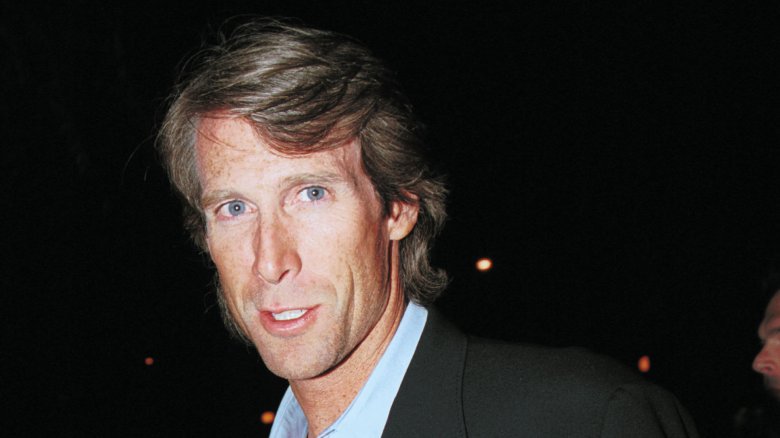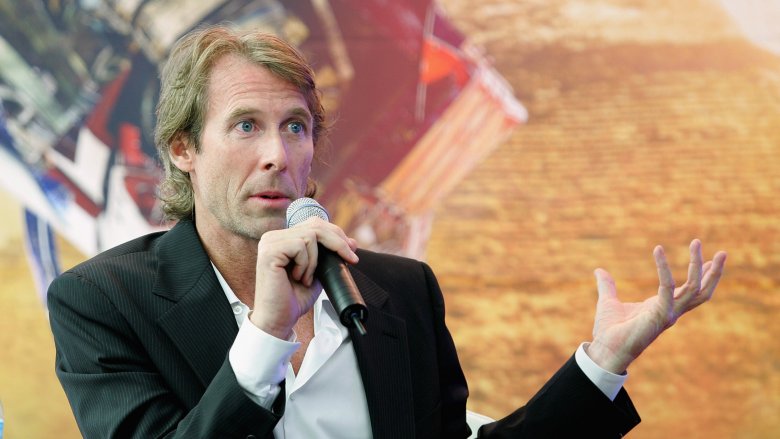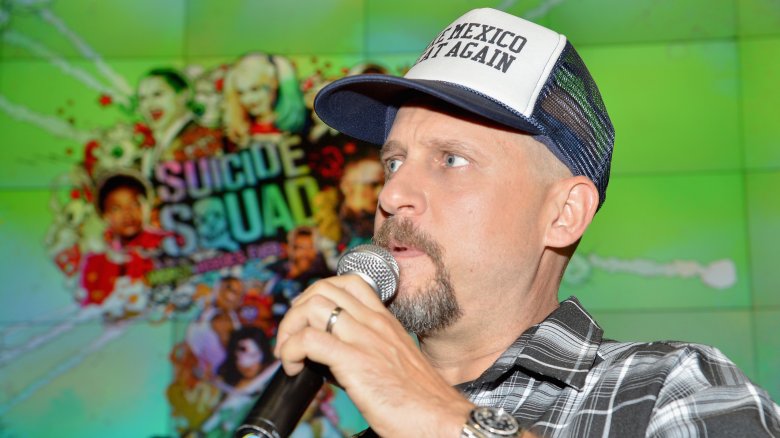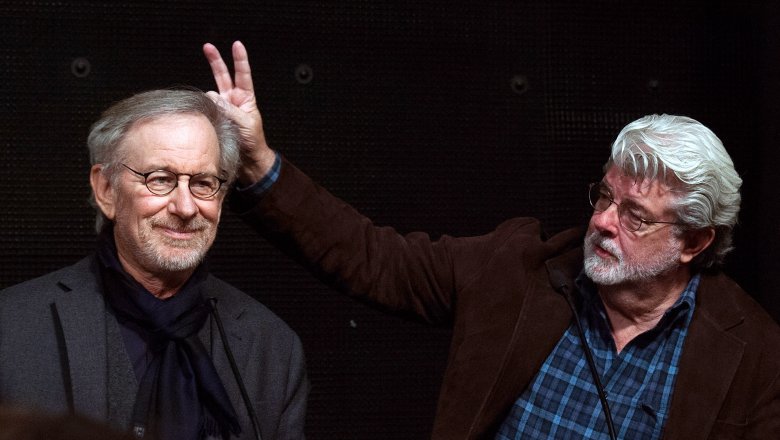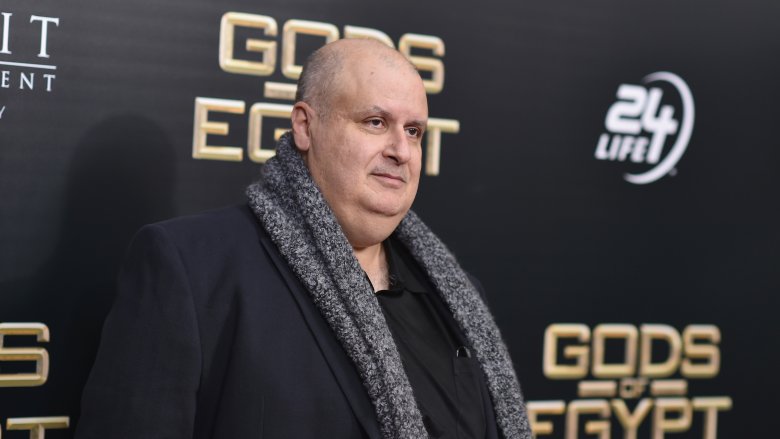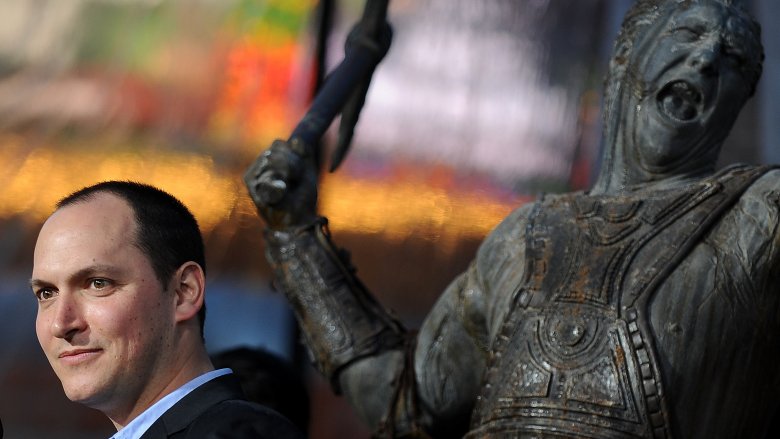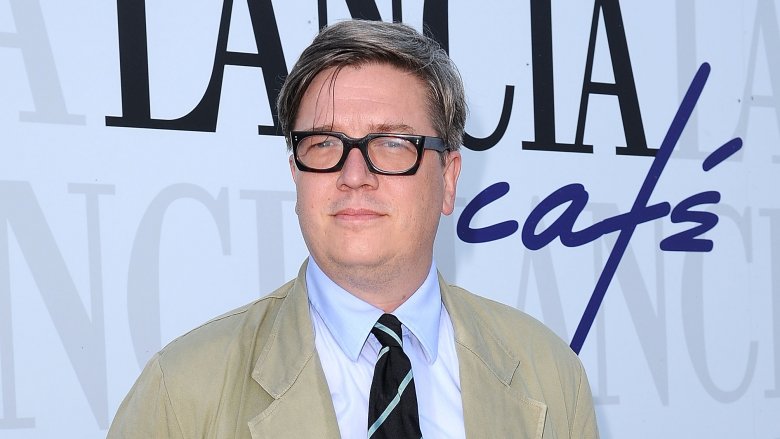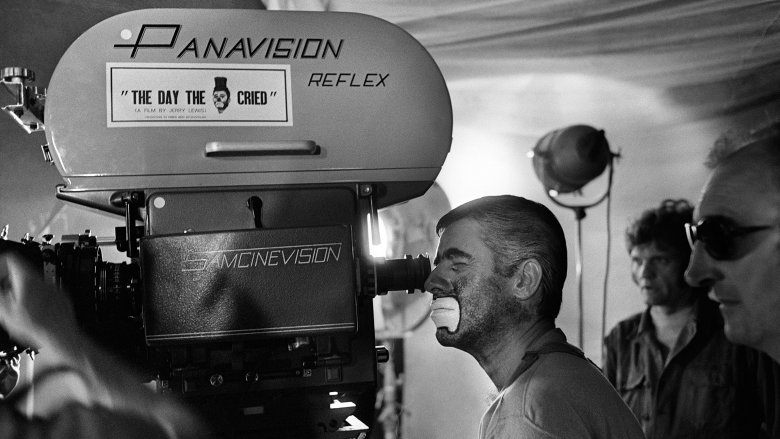Directors Who Apologized For Their Movies
Making a big Hollywood movie is just about every budding director's dream job, but it's still work—and like any job, it requires using patience and compromise. Every now and again, a director is forced to use those tools to such an extent that the final product is far from what they originally envisioned.
We've seen it in recent years with Josh Trank, who took to Twitter to share his displeasure at the way his Fantastic 4 reboot was altered by studio politics, but directors slamming their own films is nothing new. Even early masters of the craft like Alfred Hitchcock (who called 1948's Rope an "experiment that didn't work out") have been known to speak out against their own creations.
Criticizing a movie is one thing—apologizing for it is another entirely. Holding your hands up and admitting you messed up is a hard thing to do in Hollywood, and the following directors all had the guts to say they were sorry for making embarrassingly high-profile mistakes.
Joel Schumacher for Batman and Robin (1997)
Joel Schumacher's Batman and Robin is widely considered one of the worst superhero movies ever made, and while it'd be nice to say it's become easier to watch over time and the level of hate it receives is unwarranted, it hasn't and it truly isn't. The film was deemed a "sniggering, exhausting, overproduced extravaganza" by Gene Siskel, and the majority of his peers agreed—it has a measly 10 percent rating on the Tomatometer, dubbed a "frantic and mindless movie that's too jokey to care much for."
Schumacher had big shoes to fill when he took over the franchise from Tim Burton, and he managed not to completely derail it with 1995's Batman Forever. When Val Kilmer decided not to return as the Caped Crusader for the sequel, Schumacher hired rising ER star George Clooney, decked him out in a rubber batsuit complete with bat-nipples, and the rest is history.
"Such a sophisticated world we live in where two pieces of rubber the size of erasers on old pencils, those little nubs, can be an issue," Schumacher told Vice. "It's going to be on my tombstone, I know it." Speaking candidly about the intense backlash Batman and Robin received, he added, "I want to apologize to every fan that was disappointed because I think I owe them that."
Kevin Smith for Mallrats (1995)
Kevin Smith became the new darling of the indie scene after 1994's Clerks (which he wrote, directed and produced for less than $27,000), and he was under pressure to recapture that irreverent slacker vibe with his follow-up. "Mallrats was seen as a regression for Smith, a film that showed a talented writer-director giving in to his raunchiest instincts at the expense of his smarter ones," IndieWire said. "The biggest drawback of the film is the half-assed plot that keeps getting in the way of Jason Lee and Jeremy London's banter."
Two years later, Smith was back with Chasing Amy, the film that put him on the mainstream map. The overwhelmingly positive critical response confirmed that Mallrats had just been an early blip in what was shaping up to be a long and successful career, which Smith seemed to admit when he attended the Independent Spirit Awards. "Look, I want to apologize for Mallrats," he said. "I don't know what I was thinking."
Smith later backtracked on his comments, claiming that he only said what he said to diffuse tension. "Here I was standing in front of my so-called peers, all of whom were looking at me like, 'God, there he is, he made the movie that really tanked.' So it was a nice way to break the ice, but the movie is very dear to my heart."
Sam Raimi for Spider-Man 3 (2007)
After rewriting the superhero movie blueprint with 2002's Spider-Man and continuing to build on it with the 2004 sequel, Sam Raimi made the very mistake that Tim Burton avoided making when he reimagined the Batman franchise a decade earlier—he agreed to stick around for a third film. While Spider-Man 3 wasn't as bad as post-Burton '90s Batman, it still represented a significant drop in quality from the two films that came before it.
"I messed up with that third Spider-Man," the Evil Dead creator later admitted. "People hated me for years. They still hate me for it." The problems with Spider-Man 3 were deep and varied, though they were summed up pretty well in a scathing write-up by The Guardian: "Too many villains, too many love interests, a protagonist who largely telegraphed his emotions by changing his haircut, an egg-based dance-off, a criminally negligent butler, two other dance-offs and the casting of Topher Grace."
Grace getting the part of fan favorite Eddie Brock (Venom) is considered one of the worst miscasts in comic book movie history, made even more frustrating by the fact that the character was shoehorned into the film against Raimi's wishes. "It's a movie that just didn't work very well," he said. "I tried to make it work, but I didn't really believe in all the characters, and so that can't be hidden from people who loved Spider-Man."
Neill Blomkamp for Elysium (2013)
Neill Blomkamp's brilliant satirical sci-fi District 9 (2009) made the South African helmer a hot property in Hollywood, and with offers on the table, he settled on the Matt Damon-led blockbuster Elysium. The film's Rotten Tomatoes critics consensus describes it as "a bit of a comedown" for the director, but concedes that "on its own terms, it delivers just often enough to satisfy." Elysium wound up with a respectable Tomatometer rating of 67 percent and earned a reputation as good, but not great. Blomkamp himself would disagree, however.
"The thing that bothers me is if I feel like I f***** it up," he admitted. "I feel like, ultimately, the story is not the right story. I still think the satirical idea of a ring, filled with rich people, hovering above the impoverished Earth, is an awesome idea. I love it so much, I almost want to go back and do it correctly."
Blomkamp's next film, 2015's Chappie, also had him on the back foot after reviews were less than kind, though this time the director was more defiant. "Chappie was unbelievably painful for me," he said. "I'm still upset, the fact that it didn't work. I wish that it did, but it just didn't, and I still love it. I don't know what else to say, but the audience didn't get what I was going for."
Michael Bay for Armageddon (1998)
In reality, the sentence 'Michael Bay apologizes for' could end with the title of pretty much any of his movies, given how unpopular his work is with critics. However, if there's any one director who's mastered the art of making bucketloads of cash despite negative reviews, it's Bay. His first mega-hit at the box office was 1998 disaster flick Armageddon, which (while well-funded with a budget of $140 million) made an unexpected killing in the worldwide market, raking in more than $550 million. This being the case, it might surprise you to learn than Bay has some misgivings about the film.
"I will apologize for Armageddon," he said, blaming the unreasonable time restraints put in place by Touchstone Pictures for the movie losing its way towards the end. "We had to do the whole movie in 16 weeks, it was a massive undertaking. That was not fair to the movie. I would redo the entire third act if I could, but the studio literally took the movie away from us. It was terrible."
Bay went on to explain how he sought advice from another blockbuster helmer when things got tough for him. "My visual effects supervisor had a nervous breakdown, so I had to be in charge of that. I called James Cameron and asked 'What do you do when you're doing all the effects yourself?' But the movie did fine."
Michael Bay for Transformers: Revenge of the Fallen (2009)
Although Bay didn't actually say he was personally sorry for the second Transformers film, he didn't have to. Instead of coming out and apologizing for the underplotted and overlong Revenge of the Fallen, the director instead painted a picture of a collective failure, holding his hands up while also pointing an accusing finger at the writer's strike that brought Hollywood to a grinding halt at the time. "On the second movie we got burned," Bay said. "We had to agree on a story in three weeks, and then we knew they were going on strike. It was a f****d scenario all the way around. It wasn't fair to the writer, it wasn't fair to me, and it wasn't fair to anybody."
Bay went on to admit that he "failed on certain aspects" of the movie and would make sure to address those issues in future installments, promising to get rid of all the "dorky comedy" that was the basis for so much of the criticism directed at Revenge of the Fallen. While the third film, 2011's Dark of the Moon, was slightly better received by critics than its predecessor, 2014's Age of Extinction and 2017's The Last Knight both fared even worse. Bay has yet to issue an apology for either.
David Ayer for Suicide Squad (2016)
You know you're living through a crazy period in Hollywood history when a movie that makes $745 million at the box office is still considered a disappointment, but such is the power of comic book fandom. David Ayer's Suicide Squad suffered an early pummeling from critics, forcing him to publicly defend his work. The under-fire director tweeted a quote from Mexican revolutionary Emiliano Zapata that translated as "I'd rather die on my feet than live on my knees" and added that he loves and believes in the movie. "Made it for the fans," he said. "Best experience of my life."
The trouble was, many of the fans he claimed to have made the film for didn't like it. In fact, lots of them hated it. Eventually, Ayer conceded that he had dropped the ball on Suicide Squad, posting an open apology letter online. "Wish I had a time machine," he wrote. "I'd make Joker the main villain and engineer a more grounded story. I have to take the good and bad and learn from it."
Ayer explained how he took inspiration for the divisive movie from "the insanity of the original comics" and went on to discuss the pain its poor reception caused him. "I know Squad has its flaws, hell, the world knows it. Nothing hurts more than to pick up a newspaper and see a couple of years of your blood, sweat and tears ripped to shreds. The hate game is strong out there."
Steven Spielberg for Indiana Jones and the Kingdom of the Crystal Skull (2008)
Steven Spielberg is a master of many things, including the apology. The veteran director somehow managed to say sorry for elements of The Kingdom of the Crystal Skull without actually using the word, forced to remain diplomatic because of his close relationship with Indiana Jones creator George Lucas. While the character is more closely related to Spielberg in the minds of the casual film fan, it was Lucas who invented him, and while he hasn't actually written any of the scripts, he has the last say when it comes to Indy.
This was the line that Spielberg took when issuing his subtle apology for the alien skull that the whole movie was based around. "I sympathize with people who didn't like the MacGuffin, because I never liked the MacGuffin," he admitted. "George and I had big arguments about the MacGuffin... But I am loyal to my best friend. When he writes a story he believes in—even if I don't believe in it—I'm going to shoot the movie the way George envisaged it."
Shia LaBeouf revealed that he and co-star Harrison Ford weren't happy with the movie either (for which Ford called him a "f****** idiot") and in doing so cast more shade on Lucas, though one stupid moment was actually Spielberg's fault. "What people really jumped at was Indy climbing into a refrigerator and getting blown into the sky by an atom-bomb blast," he said. "That was my silly idea."
Alex Proyas for Gods of Egypt (2016)
Director Alex Proyas and Lionsgate Entertainment may very well wish they could erase Gods of Egypt from existence, but unfortunately for them—and anyone who had the misfortune of seeing it—the movie's here to stay. In one of the most indefensible instances of modern Hollywood whitewashing, Lionsgate and Proyas awarded starring roles to white actors Gerard Butler, Brenton Thwaites, and Nikolaj Coster-Waldau, despite the movie being set in ancient Egypt. The backlash was immediate, forcing a response from the man at the helm.
"The process of casting a movie has many complicated variables, but it is clear that our casting choices should have been more diverse," Proyas told viewers via Forbes. "I sincerely apologize to those who are offended by the decisions we made." Lionsgate released a statement of its own, adding, "We recognize that it is our responsibility to help ensure that casting decisions reflect the diversity and culture of the time periods portrayed. In this instance we failed to live up to our own standards of sensitivity and diversity, for which we sincerely apologize."
The studio went on to insist that Lionsgate is deeply committed to making films that reflect the diversity of their audiences, though it didn't wash with critics or audiences, especially at home in the States. Gods of Egypt was hammered with negative reviews, and only pulled in $31 million domestically against its staggering $140 million budget.
Louis Leterrier for Clash of the Titans (2010)
The original Clash of the Titans isn't exactly regarded as a classic, but its charmingly cheesy approach to Greek mythology—and its stop-motion special effects, courtesy of acclaimed artist Ray Harryhausen—have made it a cult favorite. The bar wasn't exactly set high for Louis Leterrier's big-budget 2010 remake, in other words, which made it all the more disappointing when critics agreed it didn't "offer enough visual thrills to offset the deficiencies of its script."
The film's overuse of dimly lit, post-converted 3D was a common complaint—and as Leterrier later revealed, the studio strong-armed him into the conversion, only to blame him when it went sideways. "I'm a good boy and I rolled with the punches and everything, but it's not my movie," he said. "It was a very tough experience, I was literally thrown under the bus... At one point it was like, 'Yeah, Louis chose the 3D.' And I was like, 'No guys, I didn't choose the 3D, I actually told you it's not working.' I said 'Don't do it.'"
Describing the end result as "famously rushed and famously horrible," Leterrier added, "It was absolutely horrible, the 3D. Nothing was working, it was just a gimmick to steal money from the audience." Stern words from someone who still claims to have a good relationship with Warner Bros., and the studio's "gimmick" worked perfectly—the film made almost half a billion worldwide.
Tomas Alfredson for The Snowman (2017)
Following the success of critical hits like Let The Right One In and Tinker Tailor Soldier Spy, which had his work being heralded as "gorgeous and compelling" and "intellectually exhilarating," respectively, director Tomas Alfredson missed the mark completely with his serial killer thriller The Snowman. And he knows it.
Discussing the film with the Norwegian Broadcasting Corporation (via Independent), Alfredson stopped short of an apology, but addressed the dismal criticism of the film, which culminated in a 10 percent rating on Rotten Tomatoes and a critic consensus deeming it "A mystery that feels as mashed together and perishable as its title."
"Our shoot time in Norway was way too short. We didn't get the whole story with us and when we started cutting we discovered that a lot was missing," Alfredson said, adding, "It's like when you're making a big jigsaw puzzle and a few pieces are missing so you don't see the whole picture." While that justification seems like an acquiescence to critic David Edelstein, who wrote that "The movie plays as if he threw in the towel in the editing room," Alfredson didn't take every slag on the chin.
When addressing some nitpickers' complaints about "incorrect geography featured in the film," Alfredson replied, "It's not a documentary about the geography of Norway. I wanted to make a fictive thriller. So even if not everything is geographically correct, I don't give a s***." Unfortunately, neither did international moviegoers in general—the film sat at a loss of around $25 million ahead of its U.S. premiere.
Jerry Lewis for The Day the Clown Cried (1972)
The legend of unreleased Jerry Lewis holocaust drama The Day the Clown Cried has fascinated cinephiles for decades, though for the man himself, the film is a black mark on his résumé. Lewis plays a washed-up German circus clown who gets sent to a concentration camp for mocking Hitler. He starts performing for the camp's captive children after the other prisoners take a disliking to him, but his young audience meet a tragic end: under instruction from Nazi guards, an unwitting Lewis leads them all to the gas chambers.
It's easy to see why the film was never released, though according to Simpsons voice star Harry Shearer (who saw a rough cut through a friend), it wasn't just offensive, but unfunny too. "This movie is so drastically wrong, its pathos and its comedy are so wildly misplaced, that you could not, in your fantasy of what it might be like, improve on what it really is," Shearer told Spy. "'Oh my God!'—that's all you can say."
Slapstick legend Lewis has fought hard to keep The Day the Clown Cried from ever being seen, and despite the odd set photo and short clip finding its way online, he's succeeded in hiding his shame. "In terms of that film, I was embarrassed," he said. "I was ashamed of the work, and I was grateful that I had the power to contain it all and never let anyone see it. It was bad, bad, bad."
